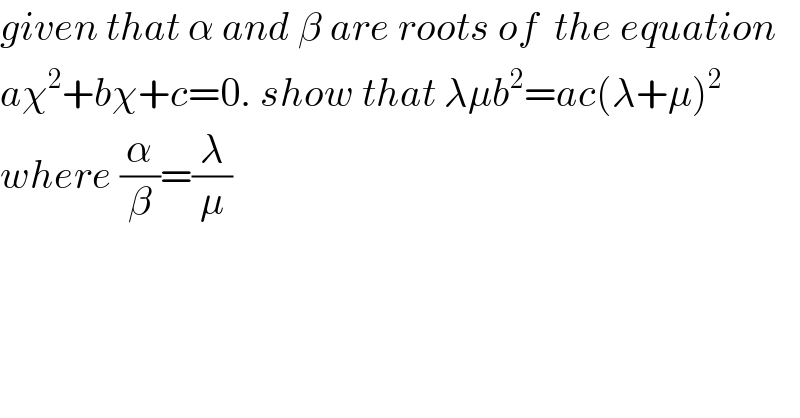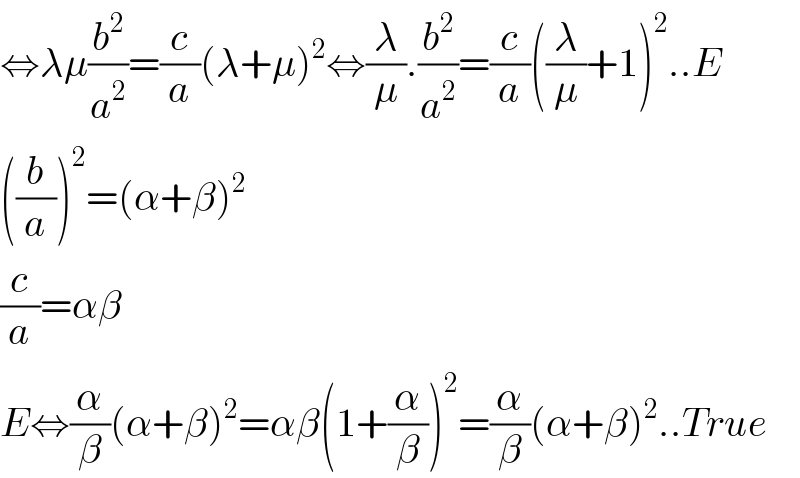
Question Number 90581 by hardylanes last updated on 24/Apr/20

$${given}\:{that}\:\alpha\:{and}\:\beta\:{are}\:{roots}\:{of}\:\:{the}\:{equation}\: \\ $$$${a}\chi^{\mathrm{2}} +{b}\chi+{c}=\mathrm{0}.\:{show}\:{that}\:\lambda\mu{b}^{\mathrm{2}} ={ac}\left(\lambda+\mu\right)^{\mathrm{2}\:} \\ $$$${where}\:\frac{\alpha}{\beta}=\frac{\lambda}{\mu} \\ $$
Answered by maths mind last updated on 24/Apr/20

$$\Leftrightarrow\lambda\mu\frac{{b}^{\mathrm{2}} }{{a}^{\mathrm{2}} }=\frac{{c}}{{a}}\left(\lambda+\mu\right)^{\mathrm{2}} \Leftrightarrow\frac{\lambda}{\mu}.\frac{{b}^{\mathrm{2}} }{{a}^{\mathrm{2}} }=\frac{{c}}{{a}}\left(\frac{\lambda}{\mu}+\mathrm{1}\right)^{\mathrm{2}} ..{E} \\ $$$$\left(\frac{{b}}{{a}}\right)^{\mathrm{2}} =\left(\alpha+\beta\right)^{\mathrm{2}} \\ $$$$\frac{{c}}{{a}}=\alpha\beta \\ $$$${E}\Leftrightarrow\frac{\alpha}{\beta}\left(\alpha+\beta\right)^{\mathrm{2}} =\alpha\beta\left(\mathrm{1}+\frac{\alpha}{\beta}\right)^{\mathrm{2}} =\frac{\alpha}{\beta}\left(\alpha+\beta\right)^{\mathrm{2}} ..{True} \\ $$
